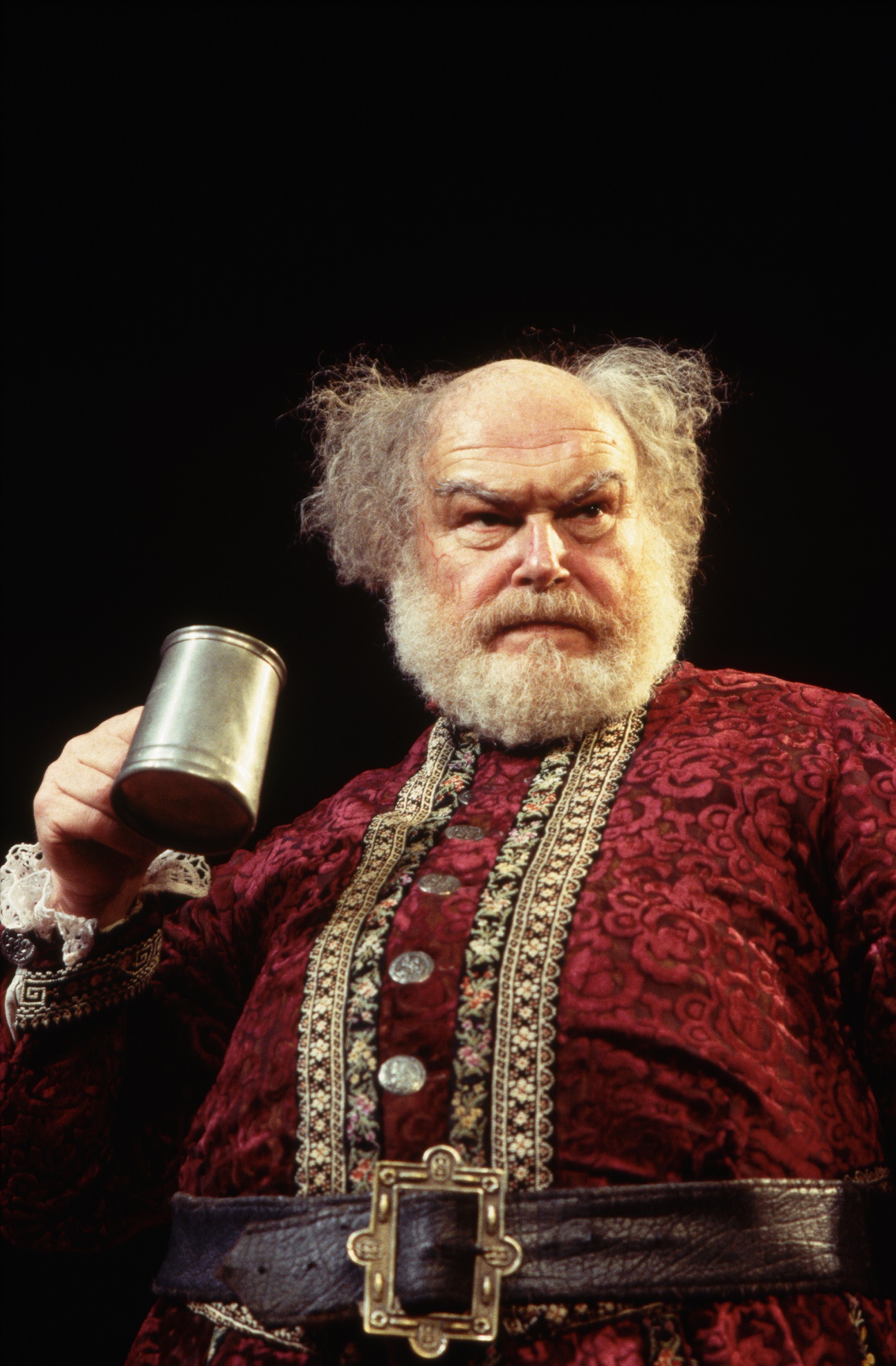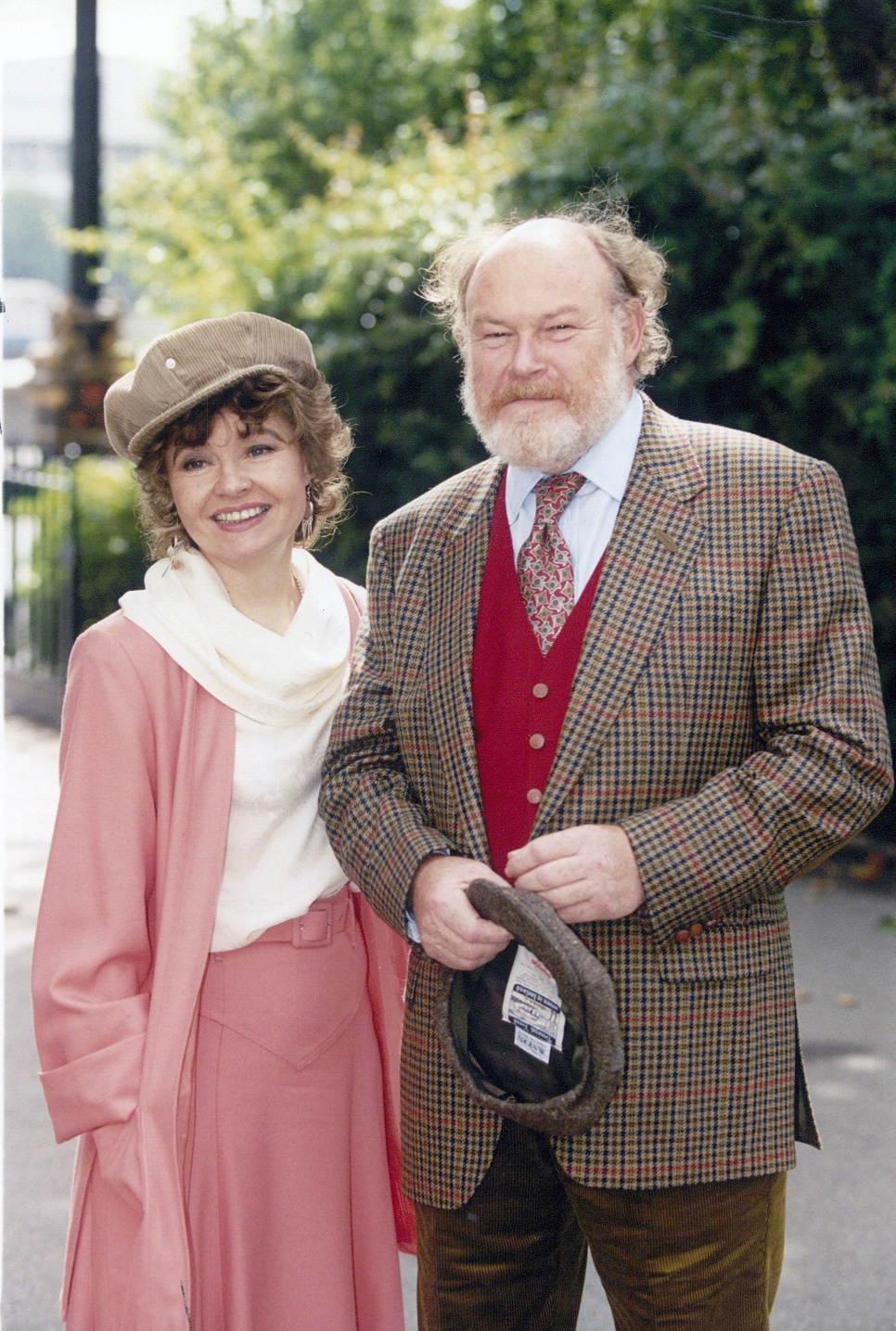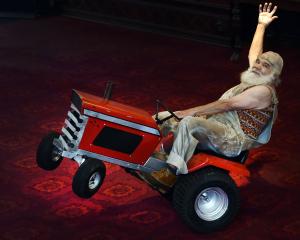
Although Timothy West never played the greatest stage roles at the National Theatre and the Royal Shakespeare Company, he took on many of them — Falstaff (twice), King Lear (four times), Uncle Vanya, Willy Loman, Ibsen’s Solness — in regional reps and on tour, in a career that spanned seven decades and established him as one of the most recognisable, popular and substantial actors of his day.
On television he was a notable interpreter of leading political and institutional figures, portraying Horatio Bottomley, Edward VII, Mikhail Gorbachev, Winston Churchill and Thomas Beecham, and he completed a double in soap history in 2013 by appearing in Coronation Street and EastEnders within one year.
This range and versatility carried right through to his involvement with theatres and companies beyond the stage itself, as director, manager and board member. With his second wife, the actor Prunella Scales, whom he married in 1963, and their first son, actor and director Samuel West, he formed a dynastic bulwark that was not grand or high-flown, but practical and participatory. He believed in the cause of regional theatre, serving on the drama panel of the British arts council, and on the board of Bristol Old Vic, spent 17 years as a director and trustee of the National Student Drama Festival and, from 2003 until 2018, was president of the London drama school Lamda.
West was a popular and convivial figure in his profession, and a stalwart of several important initiatives in the theatre of the last century: the touring Prospect Theatre Company that catapulted Ian McKellen to stardom in 1969 (he was Bolingbroke to McKellen’s Richard II, Mortimer to his Edward II); Charles Marowitz’s Open Space Theatre (in 1974, he played a man who eats himself to death in BS Johnson’s Down Red Lane); a tricky interim period at the Old Vic; and a fine Theatre Night series of plays on BBC TV, which included Joe Orton’s What the Butler Saw, John Galsworthy’s Strife and David Storey’s The Contractor.
Always solid, four-square, with a crooked grimace and a light, sarcastic touch where appropriate, West was ideal as the marquee boss in Storey’s play, as he was in the 1980s TV comedy series Brass, a send-up of all things northern, from DH Lawrence to Love on the Dole, as a ghastly old mill owner, or in JB Priestley’s When We Are Married, as the textile magnate and town councillor Albert Parker, in a superb 1986 West End revival.
West was indeed a plausible gruff Yorkshireman. He was born in Bradford, while his father, the actor Lockwood West, was on tour there. But his parents — his mother was the actress Olive Carleton-Crowe — who had met, also on tour, in The Ghost Train in 1927, settled in Bristol. The family moved to South Ruislip in London after World War 2 (but not before Timothy was expelled from Bristol grammar prep school).
He worked as a recording engineer and furniture salesman before a stint in the box office at Frinton rep and a growing enthusiasm for amateur dramatics. His association with the student drama festival began with his production of Thornton Wilder’s Our Town.

In the 1960s, he was in and out of the RSC and a member of the BBC radio drama rep. .
Prospect gave him the chance to expand into bigger roles — Prospero in The Tempest, Claudius to Derek Jacobi’s Hamlet, a King Lear at the Edinburgh festival, Harry in Charles Dyer’s Staircase — and he returned to the RSC to play a reptilian, notably nasty Judge Brack in Trevor Nunn’s 1975 world tour of Hedda Gabler.
At the same time, his TV career took off in earnest with 13 episodes of Edward the King (1975) for ATV, followed by the first of his three Sir Winstons in Churchill and the Generals (1979) and thereafter a vast array of roles, including, recently, the Dad’s Army remakes, The Lost Episodes (2019), in which he was Private Godfrey, and Gentleman Jack (2019-22), as Jeremy, father of Anne Lister (Suranne Jones). In films, he was the royal physician Dr Botkin in Franklin J Schaffner’s Nicholas and Alexandra (1971) and the police commissioner in Fred Zinnemann’s The Day of the Jackal (1973) with Edward Fox.
In 1984 he played Charlie Mucklebrass, a noisy Huddersfield thespian in Mel Smith’s production of Bamber Gascoigne’s Big in Brazil.
Scales was also in Big in Brazil. Unlike some inseparable theatrical couples they were not often in shows together, but they made an exception for When We Are Married and a 1991 Bristol Old Vic/National Theatre joint production of Eugene O’Neill’s Long Day’s Journey into Night. They were also in a fine revival of Harold Pinter’s The Birthday Party in 1999.
In his memoir, A Moment Towards the End of the Play (2001), West gives a vivid picture of an actor’s life on the road, during the last days of weekly rep, and he also published a collection of his letters to Scales, I’m Here, I Think, Where Are You? (2004), written when away on tour; she had saved them all.
He loved old railways and, especially, the inland waterways of Britain, and he and Scales made a TV programme, Great Canal Journeys, in 2014 in which they celebrated this enthusiasm and discussed Scales’ ‘‘slight condition of a sort of Alzheimer’s’’. This gentle programme, in which they appeared until 2019, encapsulated 50 years of a working marriage.
West was appointed CBE in 1984: he died on November 12, aged 90. — The Guardian












